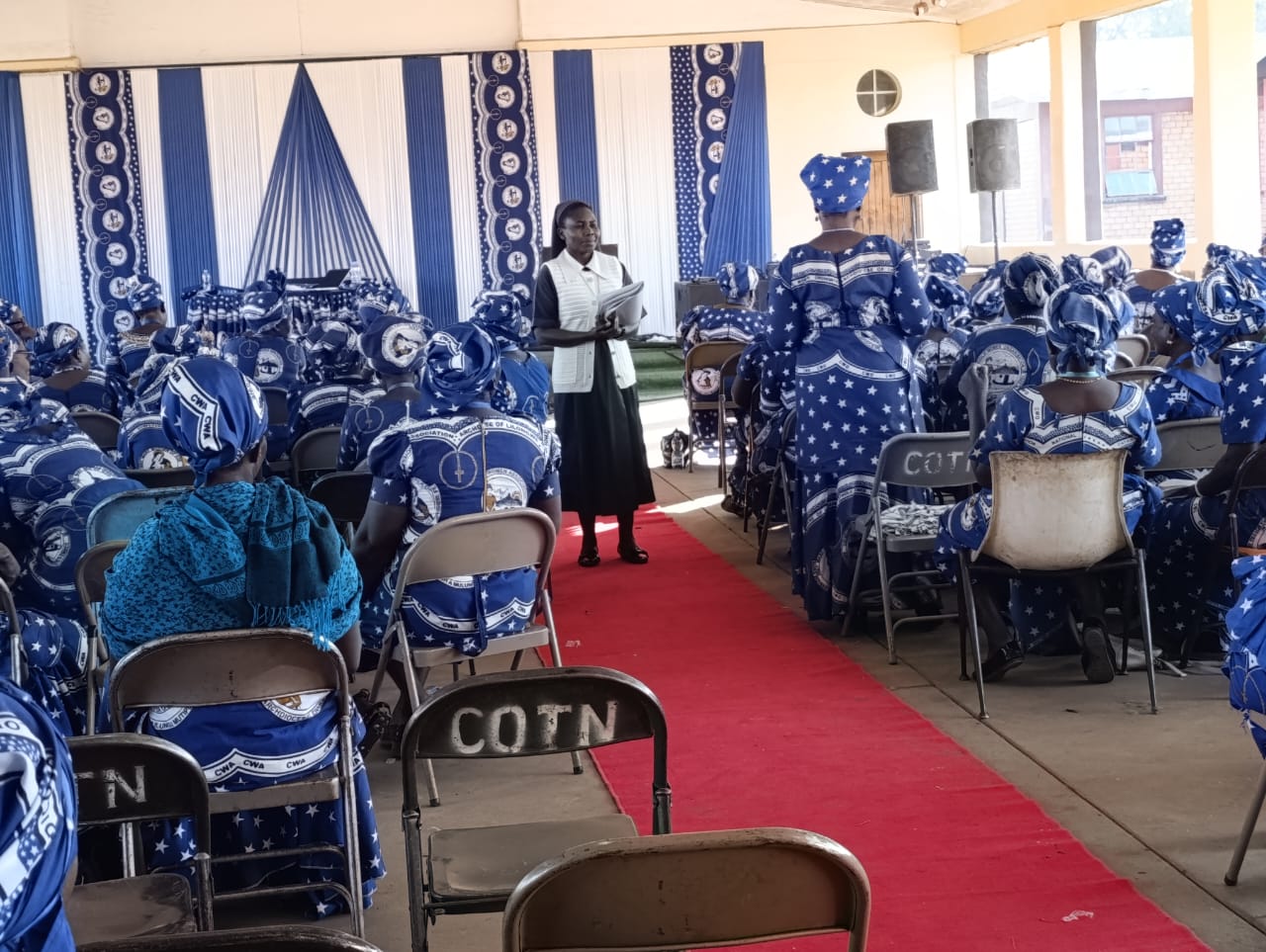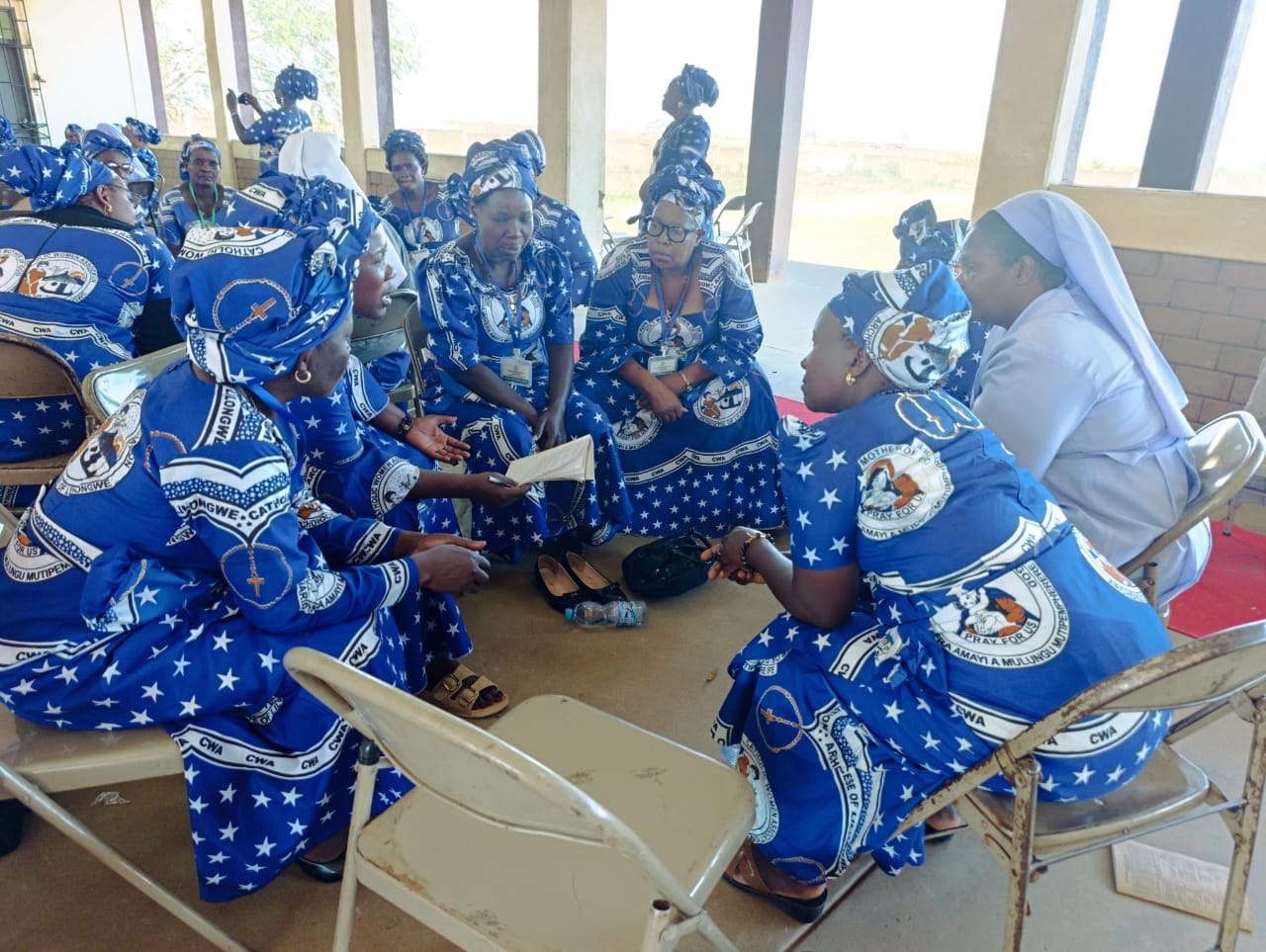Catholic Women Association Addresses GBV, Parenting and Self-Reliance
The Catholic Women Association (CWA) in the Catholic Archdiocese of Lilongwe recently held a four-day Annual General Meeting from 21 to 24 August in the archdiocese. The meeting brought together over 200 member-leaders from the seven deaneries. Among other activities, the gathering discussed pressing issues affecting women and children including gender-based violence (GBV), parenting, spirituality and self-reliance.
During the meeting, Rev. Sr. Teresa Mulenga (Teresian Sister) facilitated a discussion on safeguarding policy and GBV. She emphasized the importance of Catholic women understanding the different forms of abuse and taking an active role in protecting children.
“Wards need not to be left unattended or solely in the hands of caretakers. Catholic women have a great role in protecting children from abuse and harassment,” she said.

Sr Mulenga as a facilitator at this year’s CWA AGM
She said that living holy lives and deepening faith and spiritual practices as parents promote positive relationships with children and consequently yields self-esteem among the children.
According to data Sr. Mulenga presented, Malawi faces significant challenges related to GBV with women and girl children disproportionately affected. She said that the Catholic Church, which covers about 30% of the Christian population is not immune to these challenges. She then recognized the important steps the CWA is taking to address these issues through awareness-raising and empowerment initiatives.
“The Council of Teresian Sisters has partnered with CWA to advance women’s spiritual and economic empowerment, as well as promote gender transformative awareness. This collaboration aims to support women in overcoming the challenges they face and promoting positive change in their communities,” she said.

The CWA annual general meeting demonstrated the commitment of Catholic women to addressing critical issues affecting their communities. By working together and supporting one another, they create positive change and promote a more just and equitable society.
By Sam Kalimba
